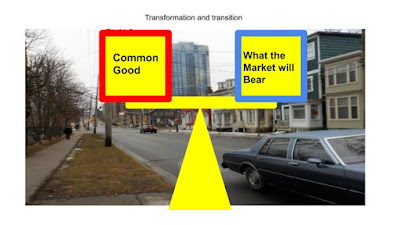Klaus Schwab discusses The Davos Agenda 2021: What is stakeholder capitalism? Its history and relevance are in the book Stakeholder Capitalism: A Global Economy that Works for Progress, People and Planet.
Moving to a new economic system?
Today, the stakeholder concept is ready for a comeback, albeit in an updated, more comprehensive form. We are facing a whole set of social, economic, and health crises, and the best response to these challenges, would be for all actors in society to consider more than their narrow and short-term self interest. So what could stakeholder capitalism look like today, and how does it differ from the stakeholder management my father’s generation intuitively implemented in the 1960s and 1970s?1
Social Contract in the 70's
Terence Corcoran asks if the long battle against turning shareholder corporations into tools of 'public purpose' is now lost? In the words of Klaus Schwab, the 82-year-old German economist who founded the World Economic Forum in 1973, the existing corporate enterprise model, the shareholder version that has dominated much of the world’s economic progress over the past century, needs to be replaced. Over the week of Jan. 25, the Davos Dialogues will aim to seize the COVID moment to remake the world economy. “It is essential for leaders from all walks of life to work together virtually for a more inclusive, cohesive and sustainable future as soon as possible in 2021.” The stakeholder movement does not deny the success of the shareholder model, often described as part of the triumph of neoliberalism.
Canada’s top government-based pension plans, from the Canada Pension Plan Investment Board to the Ontario Teachers’ Pension Plan — the country’s largest shareholders — are now backing the stakeholder movement. They want to know “how companies identify and address issues such as diversity and inclusion, human capital, and climate change” along with “social inequity, systemic racism and environmental threats.”2
Stephan Richter, Director of the Global Ideas Center, a global network of authors and analysts, and Editor-in-Chief of The Globalist, and Uwe Bott, Chief Economist of The Globalist Research Center and Senior Editor at The Globalist, suggest that Klaus Schwab and the World Economic Forum are running away from their past by suddenly disavowing neo-liberalism. Schwab notes that “For the past 30 to 50 years, the neo-liberalist ideology has increasingly prevailed in large parts of the world. This approach centers on the notion that the market knows best, that the ‘business of business is business,’ and that the government should refrain from setting clear rules for the functioning of markets. Those dogmatic beliefs have proved wrong. But fortunately, we are not destined to follow them.”
It also means tackling global mega corporations, especially those based in the United States. Beginning with their often-grotesque tax shenanigans, they are the real free riders in a troubled world. Their systematic effort to avoid paying their fair share — and thereby to contribute to preserving democracy and fairness in our societies — can no longer be tolerated. Holding these mega corporations to account firmly — even breaking them up — is in their own collective self-interest. For unless this happens, the essence of what these companies ultimately depend on the most — i.e., a consensus in favor of continued global integration — will vanish. It is already brittle enough.3
Daniel Araya, Contributor to Forbes, AI Advisor, and Policy Analyst, asks if The Venus Project could be the next stage in human evolution.
The term “Resource Based Economy” was first coined by Jacque Fresco, the founder of The Venus Project. Fresco believed that a Resource Based Economy could support the scientific integration of automating technologies (AI and robotics) and engineering systems in providing the highest possible living standards.4
https://thumbor.forbes.com/thumbor/960x0/https%3A%2F%2Fspecials-images.forbesimg.com%2Fimageserve%2F5f4ae74ae2aa5c77bd707f4e%2F960x0.jpg%3Ffit%3Dscale
The COVID crisis has shone a light on the deficiencies in the present economic and monetary systems to address a worldwide existential threat. Oskar Gonzalez has produced a Video on the transition to a resource-based economy.
A Balance is Needed
The just distribution of wealth, the challenge of inequality, and the need for worldwide coordinated action in a crisis point to the need to reconsider the effectiveness of neo-liberal capitalism and the current monetary system to best support the common good.
References




No comments:
Post a Comment